2022
Click links below to view the 2022 Proclamations of Dyslexia Awareness Month from Governor David Ige and the County Mayors.
Governor Ige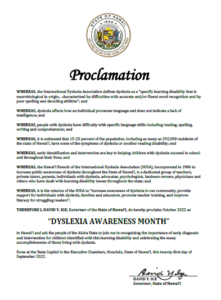 |
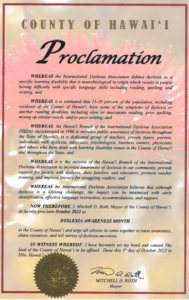
|
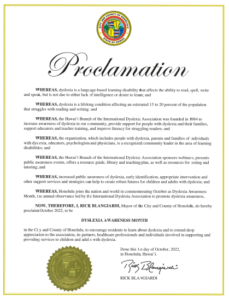 City & Country of Honolulu City & Country of Honolulu |
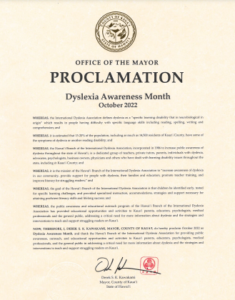 County of Kaua’i County of Kaua’i |
2021
Click links below to view the 2021 Proclamations of Dyslexia Awareness Month from Governor David Ige and the County Mayors.
 |
Mahalo for joining along in our celebration of #DyslexiaAwarenessMonth! We hope you’ve been having fun while continuing to raise awareness and center the conversation around dyslexia.
We’ll be announcing our prize winners next week, so stay tuned – but in the meantime, share a photo of you, your family, or your staff wearing red!
Email your photo to info.hi@dyslexiaida.org and you’ll be entered in the prize drawing!
#GoRedForDyslexia #YouAreNotAlone
|
|
It’s Aloha Friday and week 4 of #DyslexiaAwarenessMonth! Did you know that individuals with dyslexia are particularly vulnerable to experiencing overwhelming stress and anxiety? When a person does not fully understand their learning difference, they may tend to blame themselves for their difficulties. And, years of doubting and blaming themselves may lead to poor self-esteem and feeling more stressed and anxious.
Check out the link below to read about a step-by-step guide to help reduce stress and achieve greater success.
(Hint: Read the article before answering the question below!)
Which statement is false?
a. Fear of making public mistakes has led many people with dyslexia to become withdrawn, seek the company of younger people, or become social isolates.
b. Regular and vigorous physical activity is known to decrease brainpower and increase stress.
c. It’s important to teach individuals with dyslexia developmentally appropriate strategies, techniques, and approaches that will help to maximize their success and minimize their frustration and failure.
Email your answer to info.hi@dyslexiaida.org . You’ll be entered to win a prize, to be drawn at the end of the month.
#GoRedForDyslexia #YouAreNotAlone
|
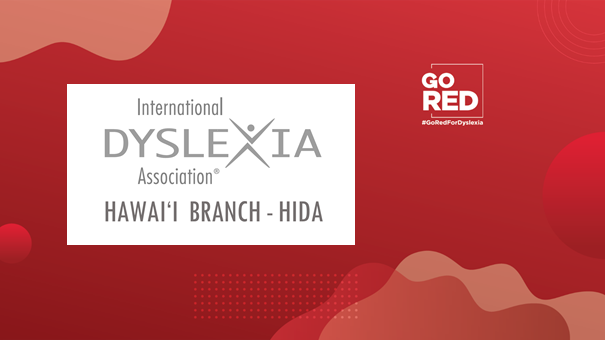 |
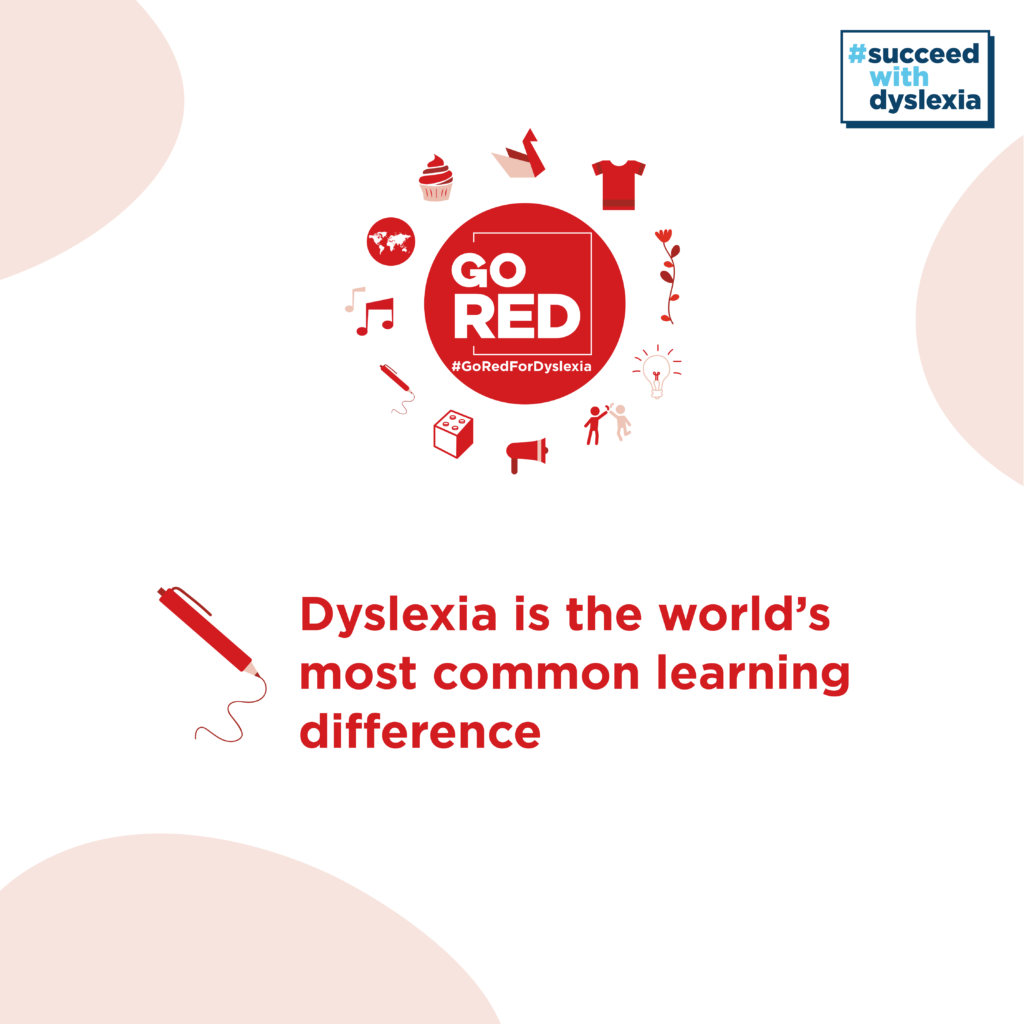 |
Aloha Friday! It’s week 3 of #DyslexiaAwarenessMonth, and we’re discussing the differences between accommodations and modifications. They’re both useful for students with dyslexia and others with learning differences, but accommodations adjust the method in which information is taught or tested without changing the level of learning and performance expectations. Modifications offer the student a way to demonstrate their abilities while also changing or reducing the skill level being taught.
(Hint: Check out this link before answering the question below!
Which statement is false?
a. Accommodations are adjustments made to allow a student to demonstrate knowledge, skills and abilities without lowering learning expectations.
b. Accommodations give students an unfair advantage and change the skills that tests measure.
c. Modifications change instructional content and knowledge as well as the way they are assessed.
Email your answer to info.hi@dyslexiaida.org . You’ll be entered to win a prize, to be drawn at the end of the month.
#GoRedForDyslexia #YouAreNotAlone
|
Welcome to week 2 of #DyslexiaAwarenessMonth! You may be asking, why #GoRedForDyslexia? The red marker used to highlight the mistakes in written work is all too familiar for people with dyslexia around the world. Groups advocating for people with dyslexia have chosen red in order to take back its meaning and globally promote dyslexia awareness in a fun and positive way. And, if you haven’t signed up yet, please don’t forget to sign up for DyslexiaCon 2021! It’s fully virtual; sign up here: dyslexiacon.org
#GoRedForDyslexia #YouAreNotAlone |
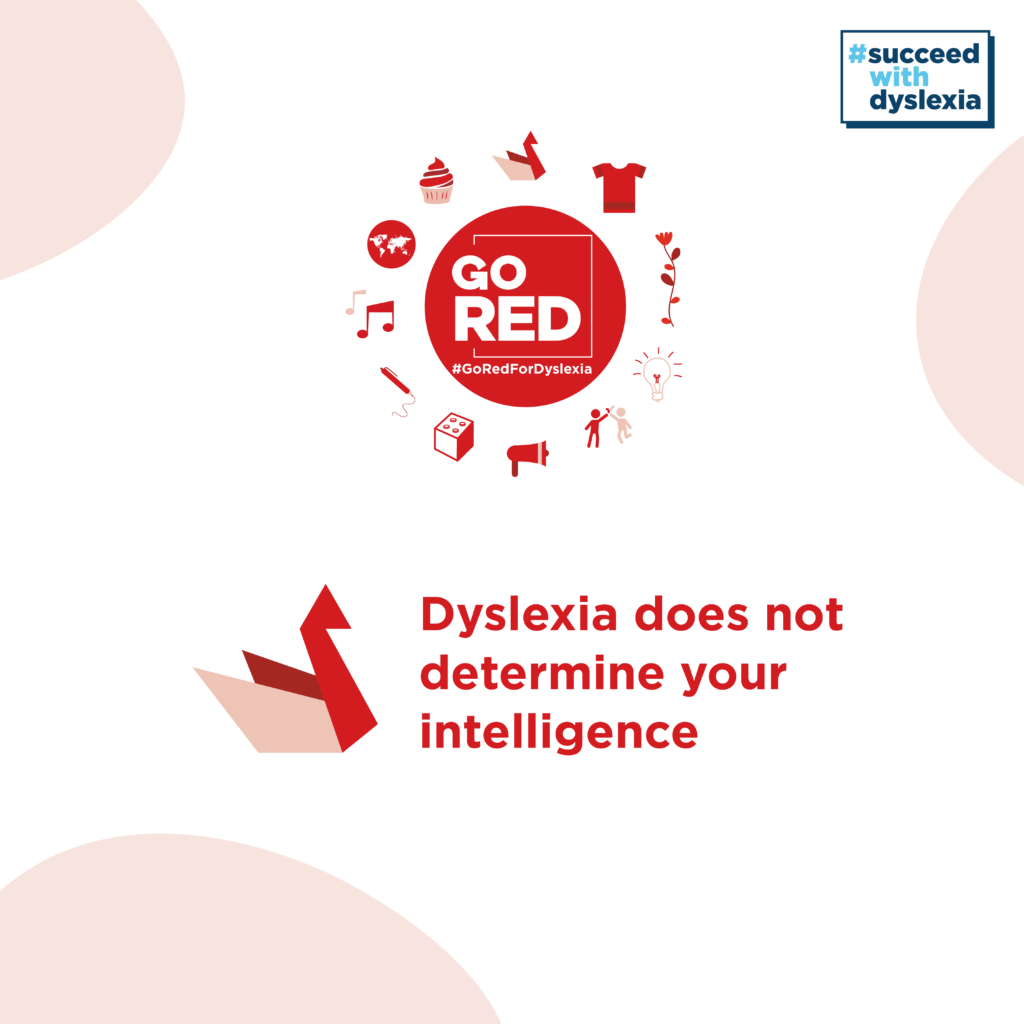 |
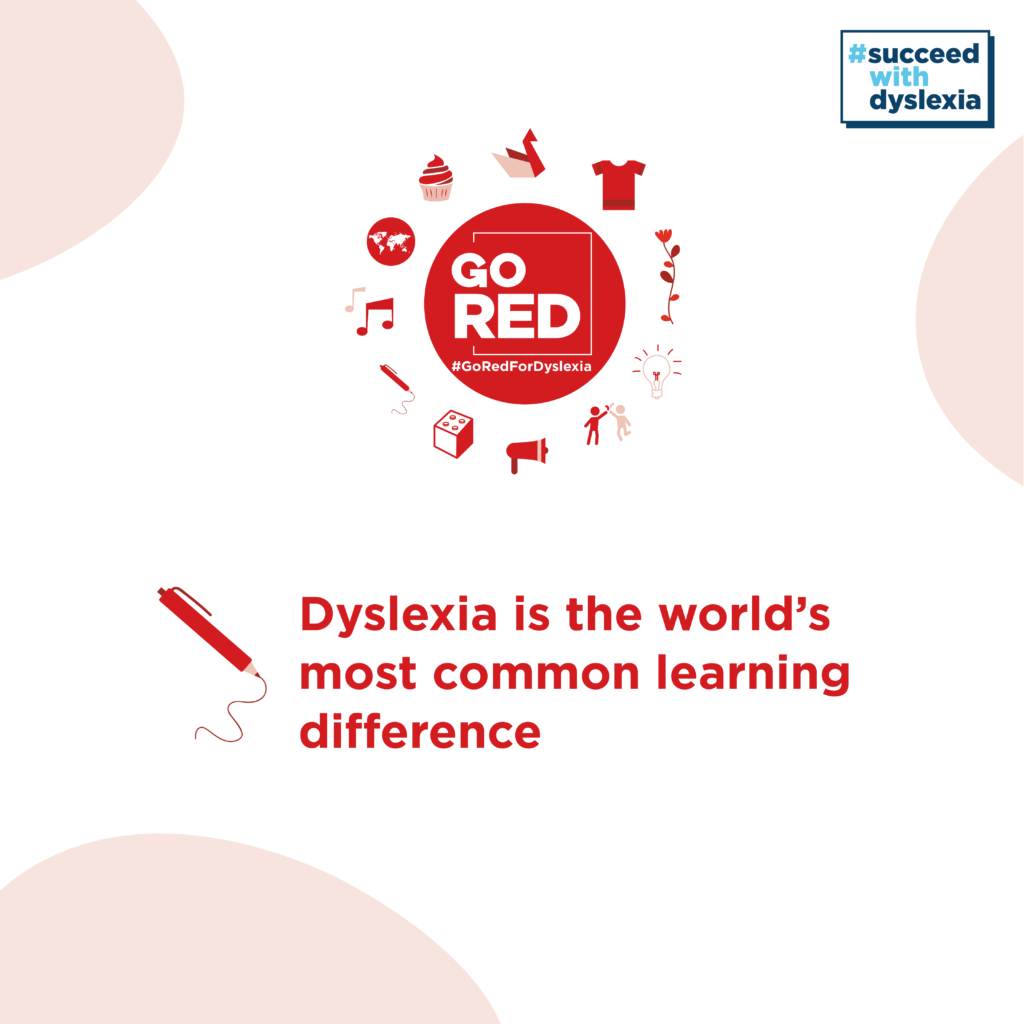 |
October is #DyslexiaAwarenessMonth! Did you know that dyslexia is the most common cause of reading, writing, and spelling difficulties? It’s much more common than you think. In fact, 15-20% of the population has a language-based learning disability. And of the students with specific learning disabilities receiving special education services, 70-80% have deficits in reading. We are here to support you, your ʻohana, and students with dyslexia. Through the month of October, we will be sharing dyslexia facts – participate in our weekly trivia to win prizes!
#GoRedForDyslexia #YouAreNotAlone |
2020
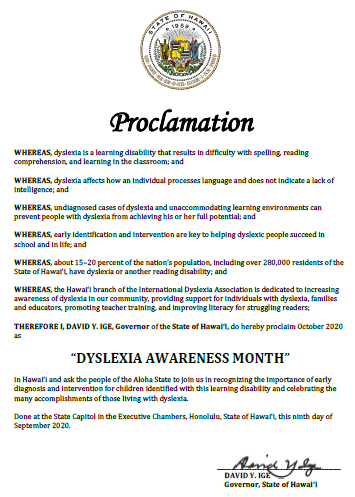 |
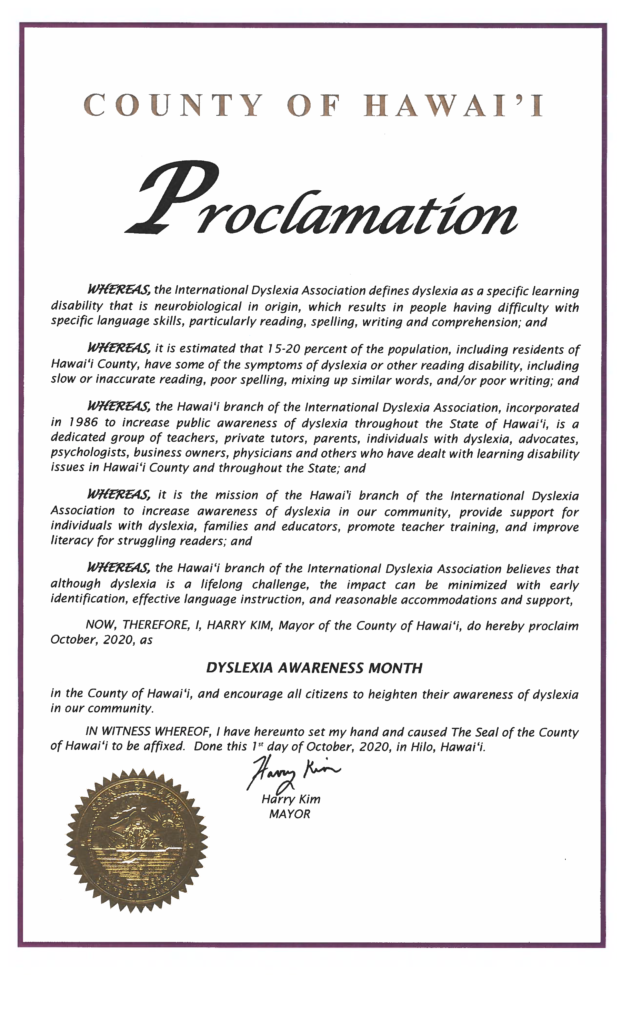 |
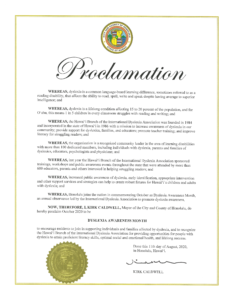 |
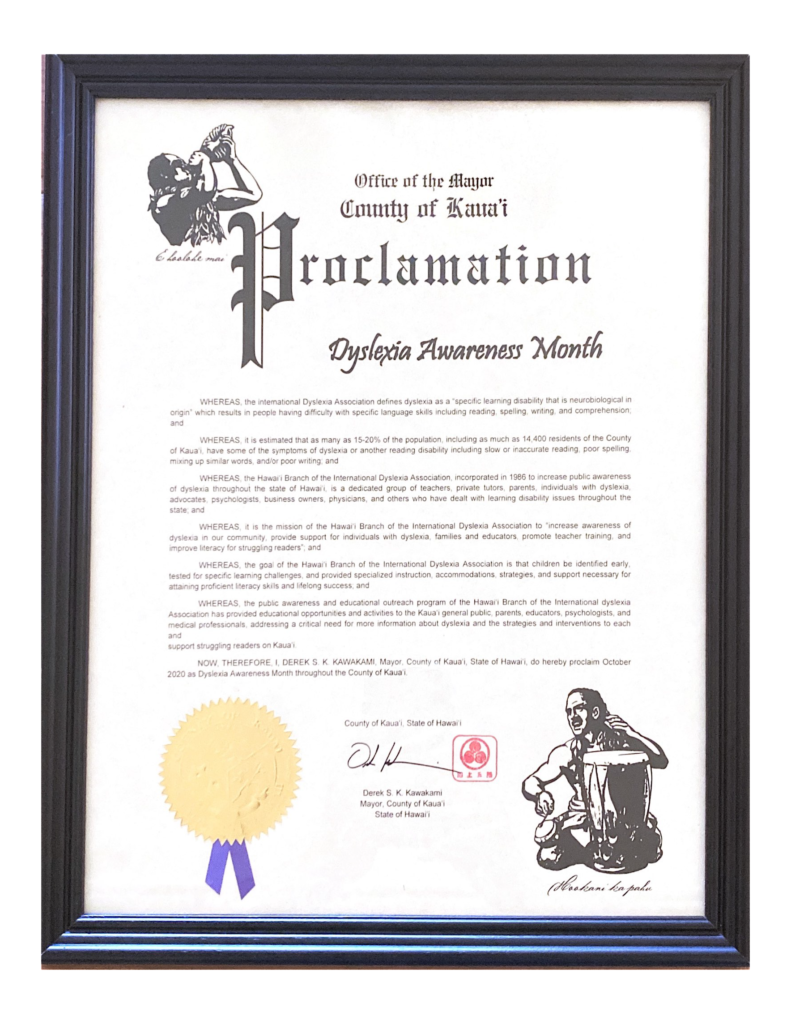 |
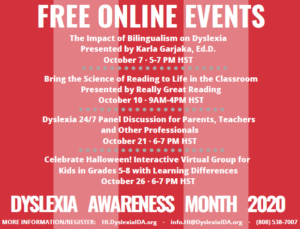 |
|||
Share this page with your friends…

